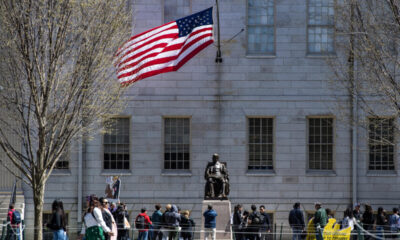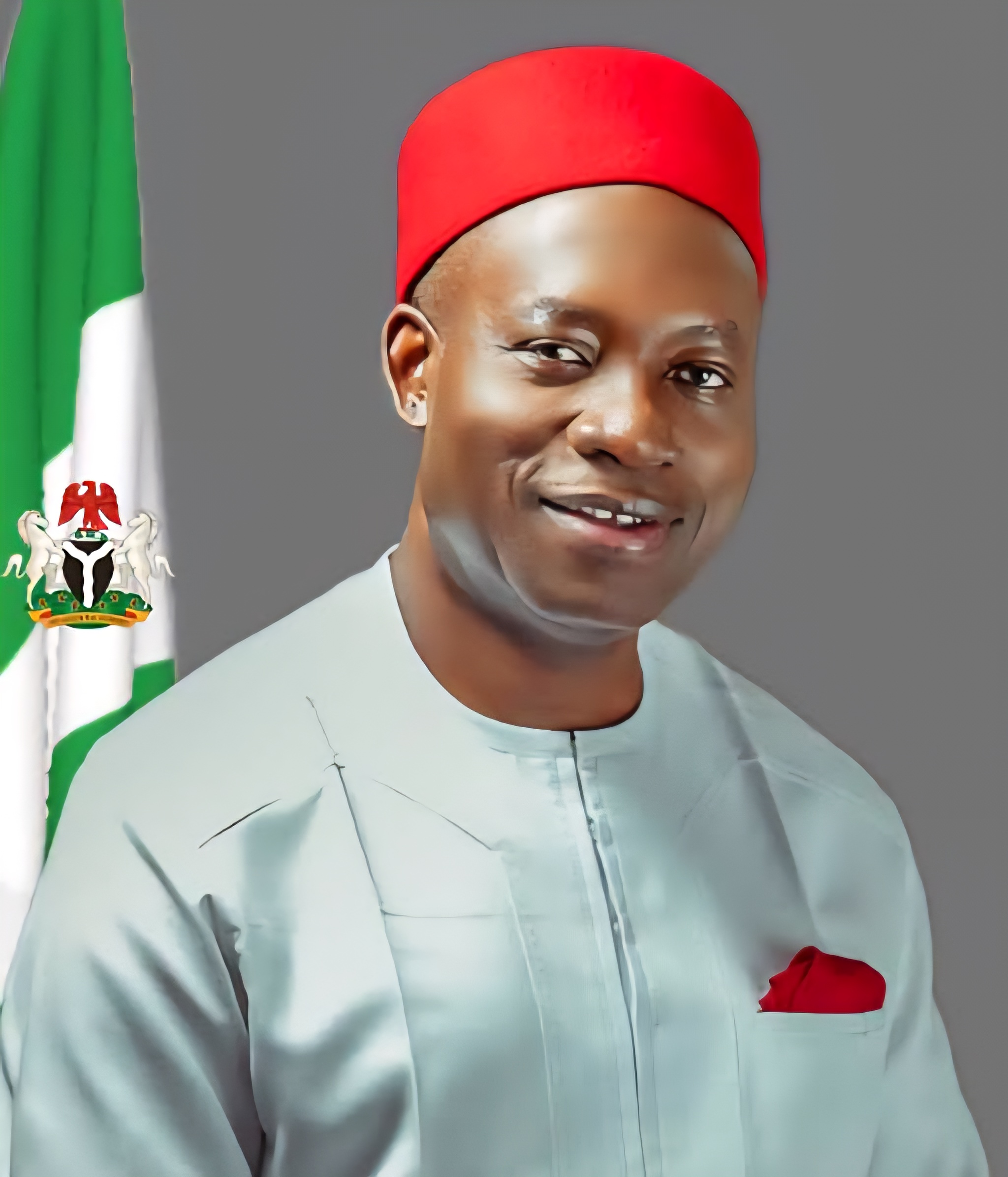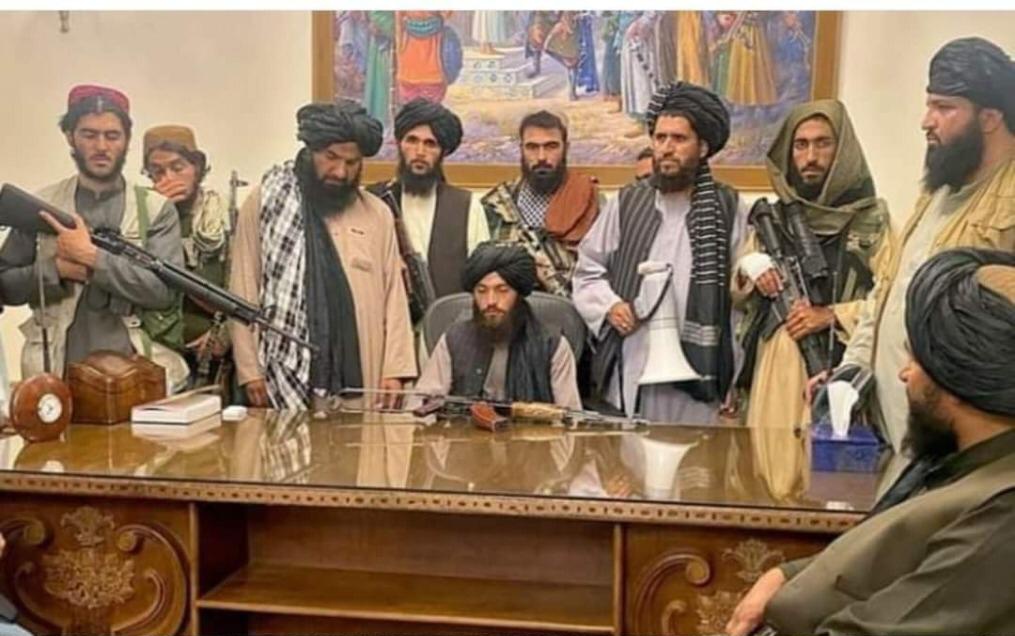

Feature
The Taliban and How They Conquered Afghanistan
Afghan force that sheltered Osama bin Laden swept through the country following a U.S. troop withdrawal
The Taliban, a fundamentalist Islamic force that ruled Afghanistan from 1996 until being toppled by U.S. forces in 2001, entered the Afghan capital Kabul on Sunday after sweeping through much of the country in recent days following a withdrawal of U.S. troops. The group that sheltered Osama bin Laden as he planned the Sept. 11, 2001, terrorist attacks on America is now consolidating control over the country as they end two decades of fighting in Afghanistan.
Who are the Taliban?
The Taliban were founded in southern Afghanistan by Mullah Mohammad Omar, a member of the Pashtun tribe who became a mujahedeen commander that helped push the Soviets out of the country in 1989. In 1994, Mullah Omar formed the group in Kandahar with about 50 followers who rose up to challenge the instability, corruption and crime that consumed Afghanistan during the post-Soviet-era civil war.
The Taliban, whose name means “students”—a reference to the founding members having studied under Mullah Omar—quickly captured Kandahar and seized the capital, Kabul, in 1996 as Afghans grew disenchanted with the country’s insecurity. The Taliban swiftly imposed strict Islamic rules that banned television and music, barred girls from going to school and forced women to wear head-to-toe coverings called burqas. The Taliban provided bin Laden with sanctuary while he planned the Sept. 11 terrorist attacks.
When the Taliban refused U.S. demands that they hand over bin Laden, American forces invaded Afghanistan and quickly toppled Mullah Omar’s government. Mullah Omar and other Taliban leaders found sanctuary in neighboring Pakistan while they mounted an insurgent campaign to regain power in Afghanistan. In February 2020, the U.S. and the Taliban signed a historic deal that laid out a 14-month timetable for America to withdraw all of its forces from Afghanistan. In the interim, talks between the Taliban and Afghan government meant to end the war gained little traction.
What are the Taliban fighting for?
The Taliban aim to reimpose their strict version of Islam across Afghanistan. Taliban leaders say they want to create an inclusive government that won’t be a threat to the West, but the group has reimposed its harsh rule in parts of the country where it secured control earlier in the conflict.
The Taliban have also said that Afghans have nothing to fear from their rule, and that they would grant amnesty to those who have worked for the government. But Afghans who fled Taliban-held areas, or lived under the insurgents’ control say they have witnessed unprovoked attacks on civilians, women being sent home from work at gunpoint, and executions of captured soldiers.
Who leads the Taliban in Afghanistan?
Mullah Omar died in 2013, although the Taliban didn’t announce his death until 2015.
In 2016, a U.S. drone strike in Pakistan killed Mullah Omar’s successor, Mullah Akhtar Mohmmad Mansour.
Since then, the group has been led by Mawlawi Haibatullah Akhundzada, a Pashtun from Kandahar who once led the group’s Islamic courts. The Taliban have a council of leaders based in Pakistan, known as the Quetta Shura, that guides the group’s decisions. The public face of the group is the head of its political wing, Mullah Abdul Ghani Baradar, who led talks with the U.S. to end America’s involvement in the 20-year war.
How do the Taliban make money?
The Taliban rely heavily on Afghanistan’s illegal drug trade for funding. The group imposes taxes on poppy growers and heroin producers working in the areas of Afghanistan it controls. The Taliban also impose taxes on businesses, profit from fuel trade in border areas under their influence and operate illegal mines in the country. The group receives outside funding from supporters in Pakistan and the Gulf. North Atlantic Treaty Organization researchers estimate that the Taliban raise as much as $1.6 billion a year.
What is at stake as U.S. forces withdraw from Afghanistan?
The U.S. spent trillions of dollars trying to stabilize Afghanistan and prevent it from becoming a new sanctuary for groups like al Qaeda or Islamic State that could plan attacks against the U.S. and its allies. The quick collapse of the U.S.-backed Afghan government is a moral and political blow to Western influence and interests in the region, where Pakistan, China, India and Russia are all jostling for strategic advantages. While the Taliban have pledged to prevent extremist groups from finding sanctuary in Afghanistan, Western officials worry that the group won’t live up to its commitments, and say hundreds of al Qaeda members already live in areas under Taliban control.
What does this mean for the future of Afghanistan?
Taliban forces capitalized on the U.S. military withdrawal to swiftly seize swaths of the country. An agreement between the Trump administration and the Taliban in February 2020, which involved drawing down American troops without the consent of the Afghan government, emboldened the Taliban. President Biden’s decision this year to withdraw all troops unconditionally by September further emboldened the Taliban to push their offensive, which as it gathered speed sapped morale among government security forces. Nine days after the Taliban captured their first provincial capital, the Islamist group entered Kabul, completing their takeover of the entire country after President Ashraf Ghani left.
The Taliban said it had issued orders to its fighters to not enter homes without owners’ permission and that the shape of the new government would soon be announced. A spokesman, Mohammad Naeem, told the Al Jazeera television channel that the group wants peaceful relations with other countries.
Thousands of Afghans, however, swarmed the airport in Kabul, desperately trying to find a way out of the country on military transport planes or the last few commercial flights.
What does Taliban rule mean for women?
The return of the Taliban threatens to upturn everyday lives. Women and girls who have had access to education and the right to work over the past 20 years are now facing up to a more repressive era in which headscarves will be required, and there are questions over what kind of public role they will be allowed. Female journalists and others have reported that the Taliban have gone door to door taking note of their addresses. In some areas where the Taliban seized power earlier in the conflict, people who fled said Taliban commanders demanded that villagers hand over unmarried women to become “wives” for their fighters.
Culled from WSJ
Feature
Ex-Oyo Governor Ladoja Installed as 44th Olubadan of Ibadan
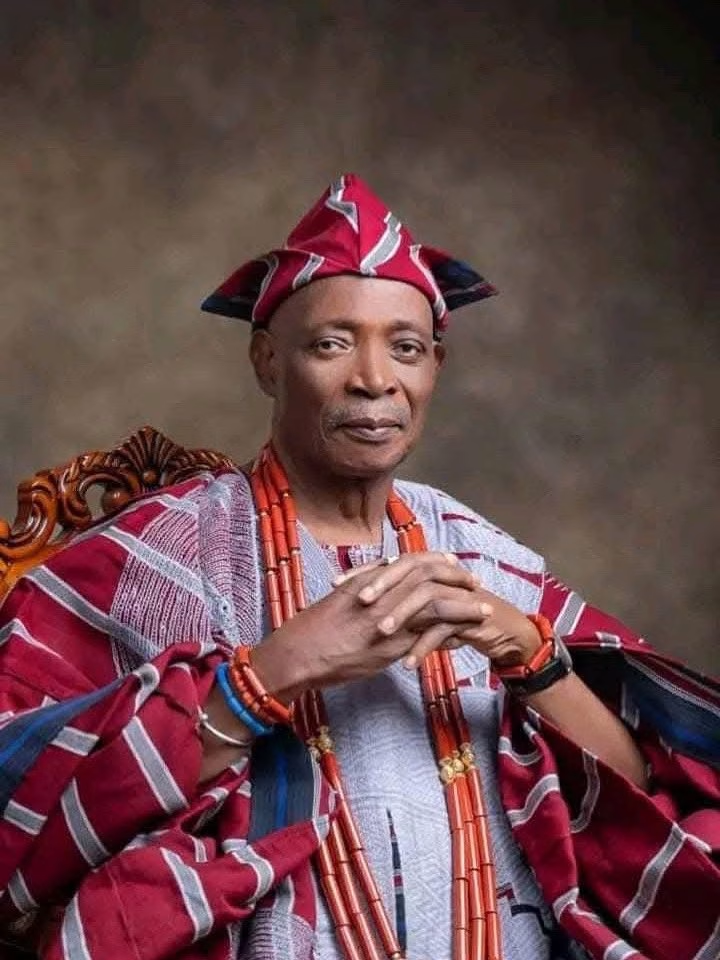
The odyssey of Senator Rashidi Adewolu Ladoja to the ancestral throne of Ibadan is not only historic but profoundly political, laced with trials and triumphs.

History often unfolds slowly, like a scroll revealing one line at a time. In Ibadan, a city steeped in tradition and resilience, history has once again taken a defining turn.
Oba Rashidi Adewolu Ladoja, former governor of Oyo State, businessman, politician, and activist, is now preparing to ascend the exalted throne as the 44th Olubadan of Ibadanland.
His decades-long journey, filled with trials, victories, and service, tells a compelling story of destiny, courage, and legacy. From political powerhouses to royal lineage, from boardrooms to the battlefields of democracy, Ladoja’s life blends tradition with transformation. His ascension is not only personal fulfilment but also a cultural and historical moment for Ibadanland.
Indeed, his coronation stands as a milestone, a testament to resilience, faith, and destiny fulfilled. On September 26, 2025, Oba Ladoja will be crowned the 44th Olubadan of Ibadanland, closing a circle that began 34 years ago when he became Mogaji of his family compound in Isale-Osi. But this is no ordinary coronation; it is the culmination of a saga defined by ambition, resistance, exile, betrayal, resilience, and ultimately, triumph.
Road to Royalty: From Mogaji to Monarch
It began in 1991 when Rashidi Ladoja became Mogaji (family head) of the Arusa compound in Isale Osi, a deeply rooted quarter in Ibadan South-West Local Government Area. That symbolic beginning marked the first step on Ibadan’s rigorous 36-step chieftaincy ladder, reserved for those destined to wear the revered crown.
The Ibadan succession system is unique among Yoruba kingdoms. Unlike other traditional stools where royal families are narrowed to specific lineages, the Olubadan system is remarkably open and transparent. Two lines of succession, the civil (Otun) and the military (Balogun), run concurrently, and candidates rise step by step until the next in line becomes Olubadan. It is an orderly system that rewards longevity, patience, and service, making the throne one of the most respected in Yorubaland.
On October 1, 1993, Ladoja was installed as Jagun Balogun Olubadan, formally entering the military line of succession. Over the next 31 years, he advanced steadily, surviving political turbulence, personal setbacks, and traditional disputes. Few endure the politically charged and physically demanding journey to the top, but Senator Ladoja did — with grit, patience, and determination.
“I never imagined destiny would call me to the throne at this time. It’s been one of patience, perseverance, and grace,” Oba Ladoja told a gathering at his Bodija residence after his official nomination.
Political Elite Meets Royal Heritage
In a city of warriors and statesmen, Oba Ladoja is the first former governor and senator to become Olubadan.
Trained as a chemical engineer in Belgium, he made his mark in oil, shipping, banking, agriculture, and transport before rising as a political force.
During the short-lived Third Republic, he was elected senator on the platform of the defunct Social Democratic Party (SDP). In 2003, he defeated incumbent Lam Adesina to become Governor of Oyo State on the platform of the Peoples Democratic Party (PDP).
Two years later, he was impeached in what many described as a conspiracy driven by then-President Olusegun Obasanjo and political strongman, Lamidi Adedibu. His reinstatement by the Supreme Court after 11 months in exile was more than a legal victory — it was a political resurrection. It cemented his reputation as “the indomitable warrior”, a man political opponents could not erase or ignore.
That resilience, combined with patient navigation of Ibadan’s chieftaincy system, has now borne fruit.
“It has been a bumpy journey filled with trials, but only made possible by the grace of God,” he told jubilant supporters.
Defiance and Reconciliation
Ladoja’s political career was often defined by principles that put him at odds with powerful figures.
In 2018, when then-Governor Abiola Ajimobi crowned Ibadan High Chiefs as kings, Ladoja stood alone in defiance. He rejected what he called a “carton-paper-made” beaded crown, declaring that the only crown worthy of him was the Olubadan’s. His refusal sparked years of political and legal confrontation.
“Why should I wear a crown not recognised by tradition?” he asked. “The throne is not for the desperate.”
Yet, in August 2024, in a radio interview, he softened his stance, saying unity was more important than pride: “The voice of the people is the voice of God. I am ready to accept the beaded crown if it will bring peace and allow me to serve the people of Ibadan.”
That statement shifted the atmosphere. His colleagues in the Olubadan-in-Council rallied behind him, and he was soon unanimously nominated and approved by Governor Seyi Makinde as the 44th Olubadan.
Unlike his clashes with Ajimobi, Ladoja’s relationship with Governor Makinde has been cordial and strategic. Makinde’s prompt approval of his nomination reflected a convergence of political and traditional power, a necessity in Oyo State where the Olubadan stool carries both cultural influence and political weight.
The Crown and the City
Ibadan is no ordinary city. It is the largest traditional Yoruba urban centre and the historic political capital of the old Western Region. The Olubadan, though largely symbolic, wields influence over millions.
For Oba Ladoja, this reign is not ceremonial. It is an opportunity to redefine the stool, blending cultural authority with political wisdom.
“I pray that my reign shall bring peace, prosperity, and progress to Ibadanland,” he said, calling for unity.
Expectations are high. From Oke Aremo to Abuja, all eyes are on him to redefine the modern monarch’s role not just custodian of rituals, but guardian of peace, diplomacy, and security. He has already urged coordinated efforts to secure Ibadan and Yorubaland amid rising insecurity.
The coronation of Oba Ladoja is more than a local event; it is a national stage. Expected guests include President Bola Tinubu, former Vice President Atiku Abubakar, Senator Rabiu Kwankwaso, former governors, business moguls, activists, and traditional rulers across Yorubaland and beyond.
Their presence underlines the symbolic place of Ibadan in Yoruba and Nigerian politics.
Activism, Sacrifice, and Legacy
Ladoja’s story is not just about royalty; it is about activism and identity. As a NADECO stalwart, he stood against military rule in the 1990s, supporting the pro-democracy struggle after the annulment of the June 12 election.
Chief Adeniyi Akintola (SAN) recalls: “We used his ships for NADECO’s activities after the Senate was dissolved. His businesses were seriously affected — he had a shipping line and the largest palm plantation in West Africa then.”
As governor, he challenged a sitting president. As High Chief, he resisted compromising tradition. As a businessman, he sacrificed fortune for democracy. Now, as Olubadan, he embodies the fusion of political power and cultural authority.
To former Nigerian Ambassador, Dr. Yemi Farounbi, “Ibadan is the intellectual capital of Nigeria. It provided security for the Yoruba in times of war. Peace must return, and the Olubadan must lead it.”
Professor Tunde Adeniran, a former minister, added: “He comes with experience and expansive networks. Expectations are high. We must rally around him.”
For younger Ibadan residents, his ascension represents continuity and hope. “We grew up hearing about his struggles as governor and his fight for justice,” said Akeem Alabi, a postgraduate student at the University of Ibadan. “Now he is our king. We expect him to stand for the people, just as he did in politics.”
The Crown After the Storm
For many, the crowning of Oba Rashidi Ladoja is poetic justice, a fitting epilogue to a life of battles in politics, business, and tradition.
From Mogaji in 1991 to Olubadan in 2025, from impeachment to reinstatement, from defiance to reconciliation, he now wears the crown not as a reward but as a responsibility.
The royal father is no longer just the “cat with nine lives”; he is the king whose destiny has come full circle.
Governor Seyi Makinde has expressed readiness to work seamlessly with Oba Ladoja towards the development of Ibadan city, describing the new monarch as an exemplary leader whose wealth of experience in politics, business, and community service will enrich the Olubadan stool.
Makinde recalled that his own political journey could not be written without Ladoja’s role, stressing that: “Baba remains a father figure whose guidance has shaped many of us. I hold him in high esteem, and I believe Ibadan and Oyo State will benefit from his reign as Olubadan.”
As Ibadan embraces this new chapter, the coronation of Oba Rashidi Adewolu Ladoja stands as both history and prophecy fulfilled a story of destiny, resilience, and triumph, written across the canvas of politics, tradition, and legacy.
CULLED FROM THE GUARDIAN
Feature
𝗜𝗻𝘁𝗹. 𝗗𝗮𝘆 𝗼𝗳 𝗣𝗲𝗮𝗰𝗲: 𝗛𝗼𝗻. 𝗢𝘁𝘂𝗼’𝘀 “𝗡𝗼 𝗗𝗶𝘀𝗰𝗿𝗶𝗺𝗶𝗻𝗮𝘁𝗶𝗼𝗻 𝗣𝗼𝗹𝗶𝗰𝘆” 𝗮 𝗣𝗮𝘁𝗵𝘄𝗮𝘆 𝘁𝗼 𝗣𝗲𝗮𝗰𝗲𝗳𝘂𝗹 𝗔𝗻𝗱𝗼𝗻𝗶
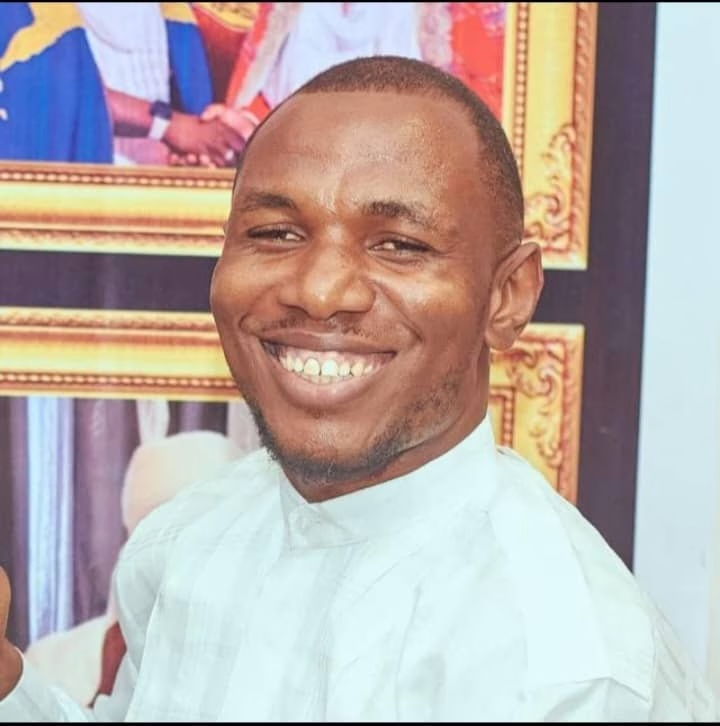
By Ima-owaji G. Shedrack
As the world commemorates the International Day of Peace, attention has once again shifted to the bold and inclusive policies of the Chairman of Andoni Local Government Area, Hon. Promise Lucky Otuo, whose leadership style has been described as a model for peacebuilding and sustainable development.
Since assuming office, Hon. Otuo has consistently emphasized that his government is a “no discrimination government,” a philosophy set to guide his policies and programs across the council.
In a remarkable demonstration of this principle, the Chairman extended empowerment opportunities not only to indigenes but also to non-indigenes residing and trading in Andoni. This inclusive approach, observers say, has deepened trust, fostered unity, and reduced the tensions that often arise from feelings of neglect or inequality.
Mr. Ima-owaji G. Shedrack, a stakeholder in the Renewed Hope family, applauded the initiative, noting that Hon. Otuo has shown that peace is not just about preventing conflict but also a conscious steps in building an environment where fairness and inclusiveness are at the center of governance.
“As Andoni joins the world to mark the International Day of Peace, Hon. Lucky Otuo’s leadership style that is anchored on ‘no discrimination’ is built to offer a clear roadmap, where peace is not only preached but practiced through deliberate policies of fairness and equal opportunity.”
Follow BONA NAIJA for more
Feature
Eid-ul-Mawlid: Uphold Hon. Lucky Otuo in your prayers, Ima-owaji Shedrack Urges non indigenes in ANOLGA

A stakeholder in Andoni Local Government Area of Rivers State, Ima-owaji Shedrack, has called on Muslim faithful in the area to remember the Chairman of Andoni LGA, Hon. Lucky Promise Otuo, in their prayers as they celebrate Eid-ul-Mawlid, the commemoration of the birth of Prophet Muhammad (SAW).
Speaking on Friday during the nationwide celebration, Ima-owaji stressed the importance of continuous prayers for leaders at all levels, describing Hon. Lucky Otuo’s administration as one that transcends sentiments, tribal lines, and religious differences.
“The government of Hon. Lucky Otuo is one beyond discrimination. Both indigenes and non-indigenes are carried along. This is why I urge our Muslim brothers and sisters to use this sacred celebration to pray for him and for the peace, progress, and prosperity of Andoni LGA,” Ima-owaji said.
He further noted that the Eid-ul-Mawlid celebration provides Muslims with another opportunity to renew their commitment to unity and inclusiveness, while also offering prayers for leaders who are steering the affairs of the people with sincerity.
Ima-owaji urged residents of Andoni, regardless of religion or origin, to embrace peace and support the development agenda of Hon. Otuo’s administration, which he said is focused on progress and inclusivity.
Follow BONA NAIJA for more
Feature
What to Know About CBN’s New Geo-Tagging Requirement for POS Terminals
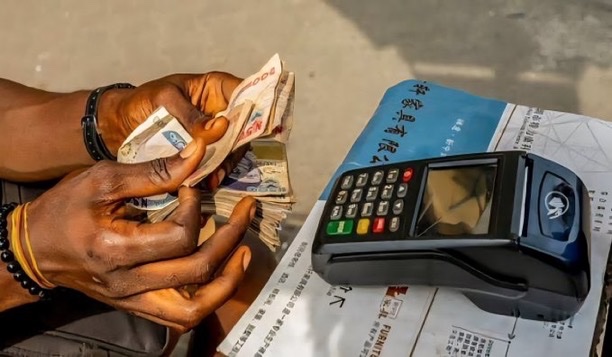
The Central Bank of Nigeria (CBN) has issued a new directive requiring all Point of Sale (POS) terminals to be geo-tagged within the next 60 days, a move designed to curb fraud, enhance oversight, and modernize Nigeria’s digital payment ecosystem.
According to a circular released on August 26, 2025, any terminal not geo-tagged will be deactivated from October 20, 2025.
“This initiative is designed to ensure that all PoS terminals are traceable and that transactions are secure. Terminals operating outside their registered location will be flagged, and non-compliant devices will be deactivated,” the CBN stated.
Here’s a breakdown of what the policy means for operators, agents, merchants, and customers.
What Geo-Tagging Means
Geo-tagging is the process of embedding location data, such as latitude and longitude, into a digital device.
For POS terminals, this means linking each machine to its exact physical address using GPS technology, creating a traceable digital footprint that makes every device verifiable and harder to misuse.
The CBN’s Key Requirements
- Geolocation Features
All POS devices must have GPS and dual-frequency receivers for accurate location tracking. - Real-Time Location Transmission
Terminals must capture and transmit their exact location at the start of every transaction. - Geofencing
Each POS terminal will be restricted to a 10-metre radius around its registered location. Transactions outside this zone will be flagged for investigation. - Registration
Licensed banks and fintechs—such as Moniepoint, OPay, PalmPay, and others—must register each device with exact merchant coordinates through a payment aggregator. - New Devices
No new terminal will be certified or activated without geo-tagging.
Why Geo-Tagging Matters
- Crackdown on Fraudulent Terminals
Geo-tagging eliminates “ghost” or cloned devices and reduces card fraud, unauthorized withdrawals, and misuse of mobile POS machines. It also disrupts ransom collections and terrorism financing through untraceable transactions. - Better Oversight and Transparency
Regulators gain real-time visibility of nationwide transactions, improving fraud detection and aiding financial inclusion strategies by identifying underserved areas. - Boosting Consumer Trust
Customers gain stronger protection knowing every POS is tied to a verified address, building confidence in digital payments.
Impact on Stakeholders
- Banks & Fintechs
Institutions face the challenge of upgrading thousands of terminals and registering them within 60 days, requiring both funding and logistics. - POS Agents & Merchants
Operators must work strictly within 10 metres of their registered business location, potentially disrupting mobile POS services that move around to serve customers. - Customers
Shoppers stand to benefit most, with safer and more transparent transactions in Nigeria’s payment system.
Conclusion
The CBN’s geo-tagging directive is one of the most sweeping reforms in Nigeria’s digital payments landscape. While it presents operational hurdles for banks, fintechs, and agents, it promises stronger security, fraud reduction, and renewed consumer trust in the long run.
Follow BONA NAIJA for more
Feature
Goodluck Nwaneri Pays Condolence Visit To The APC National Chairman
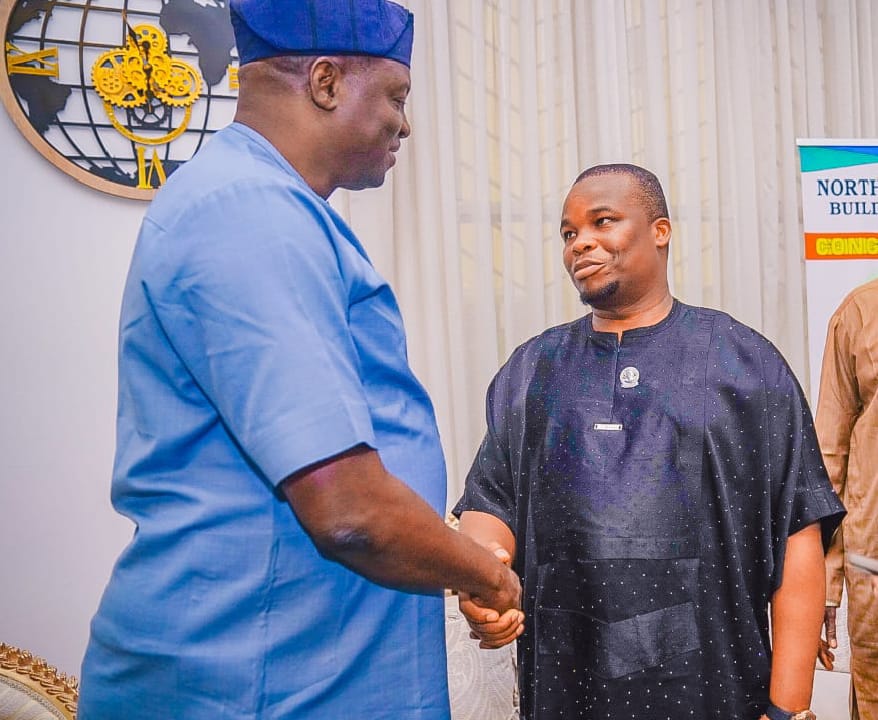
Chief Goodluck Nwaneri, a Director city boy movement, has paid a condolence visit to the APC National Chairman, Prof. Nentawe Yilwatda, at his residence in Abuja, following the passing of his beloved mother, late Mrs. Lydia Toma Yilwatda.
During the visit, Chief Nwaneri expressed his deep sympathy to Prof. Nentawe and the entire Yilwatda family, describing the death of a mother as a painful and irreplaceable loss. He noted that the late Mrs. Lydia Toma Yilwatda lived an exemplary life of faith, humility, and service, evident in the leadership qualities and values instilled in her children.
Chief Nwaneri prayed for the peaceful repose of her soul and asked God to grant the APC National Chairman and his family the strength and fortitude to bear the painful loss. He also encouraged them to find comfort in the enduring legacy their mother left behind.
He further reaffirmed his solidarity with Prof. Nentawe in this moment of grief, while urging the family to remain strong and united in honoring the life and memory of their departed matriarch.
-
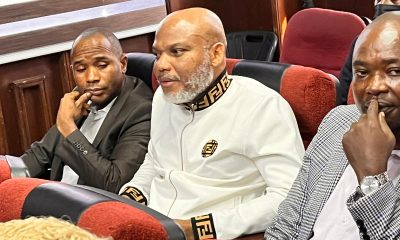
 Abuja2 weeks ago
Abuja2 weeks agoIPOB Leader Nnamdi Kanu Declines to Enter Defence, Insists “No Case” Against Him
-

 Music News3 weeks ago
Music News3 weeks agoFlavour Unveils ‘Afroculture’ Single Featuring Baaba Maal, Directed by TG Omori
-
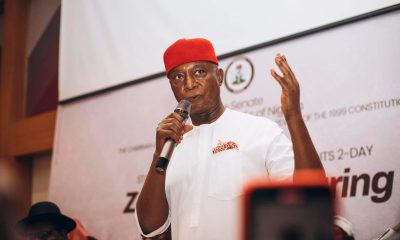
 Lifestyle3 weeks ago
Lifestyle3 weeks agoNed Nwoko Drops Bombshell, Says ‘Men Marrying Multiple Wives Are Helping Women’
-

 World News3 weeks ago
World News3 weeks agoTwo Killed, Two Injured as Plane Bursts Into Flames After Takeoff Crash in Venezuela
-

 Travel3 weeks ago
Travel3 weeks agoFRSC Flags Off 2025 Ember Months Campaign, Unveils Contactless Biometric Driver’s Licence System
-

 News3 weeks ago
News3 weeks agoNed Nwoko Gives Reason for Clash with Regina Daniels
-

 Entertainment2 weeks ago
Entertainment2 weeks agoDavido Kicks Off ‘5ive Alive’ Tour with Sold-Out Uyo Stadium Show
-

 World News2 weeks ago
World News2 weeks agoTrump asks Pentagon to immediately start testing U.S. nuclear weapons
-

 World News7 days ago
World News7 days agoUS Military Submits Contingency Plan for Action in Nigeria
-
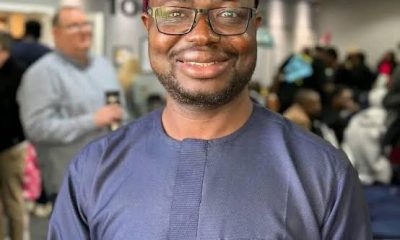
 News3 weeks ago
News3 weeks agoBREAKING: Tinubu Nominates Dr. Bernard Doro as New Minister from Plateau State









